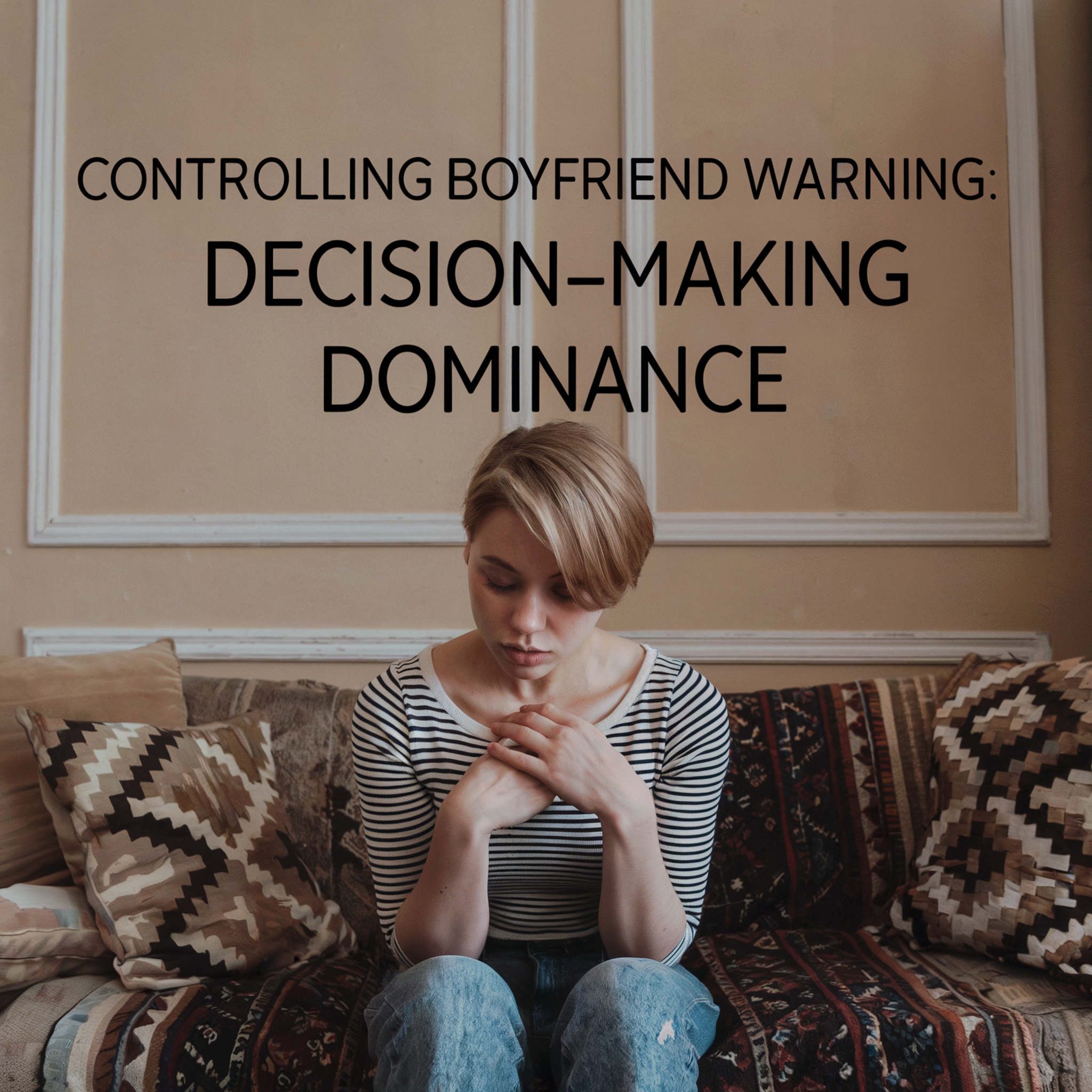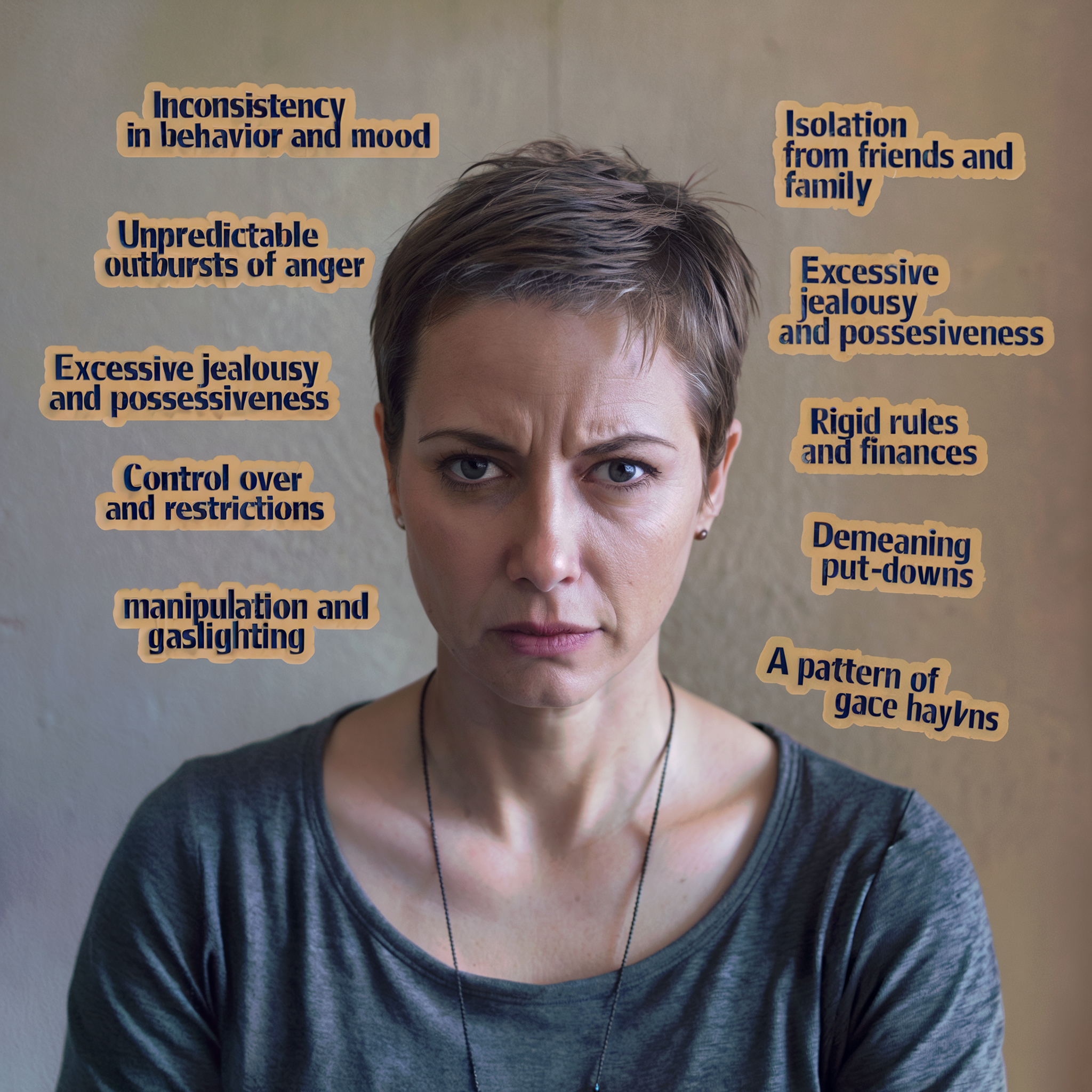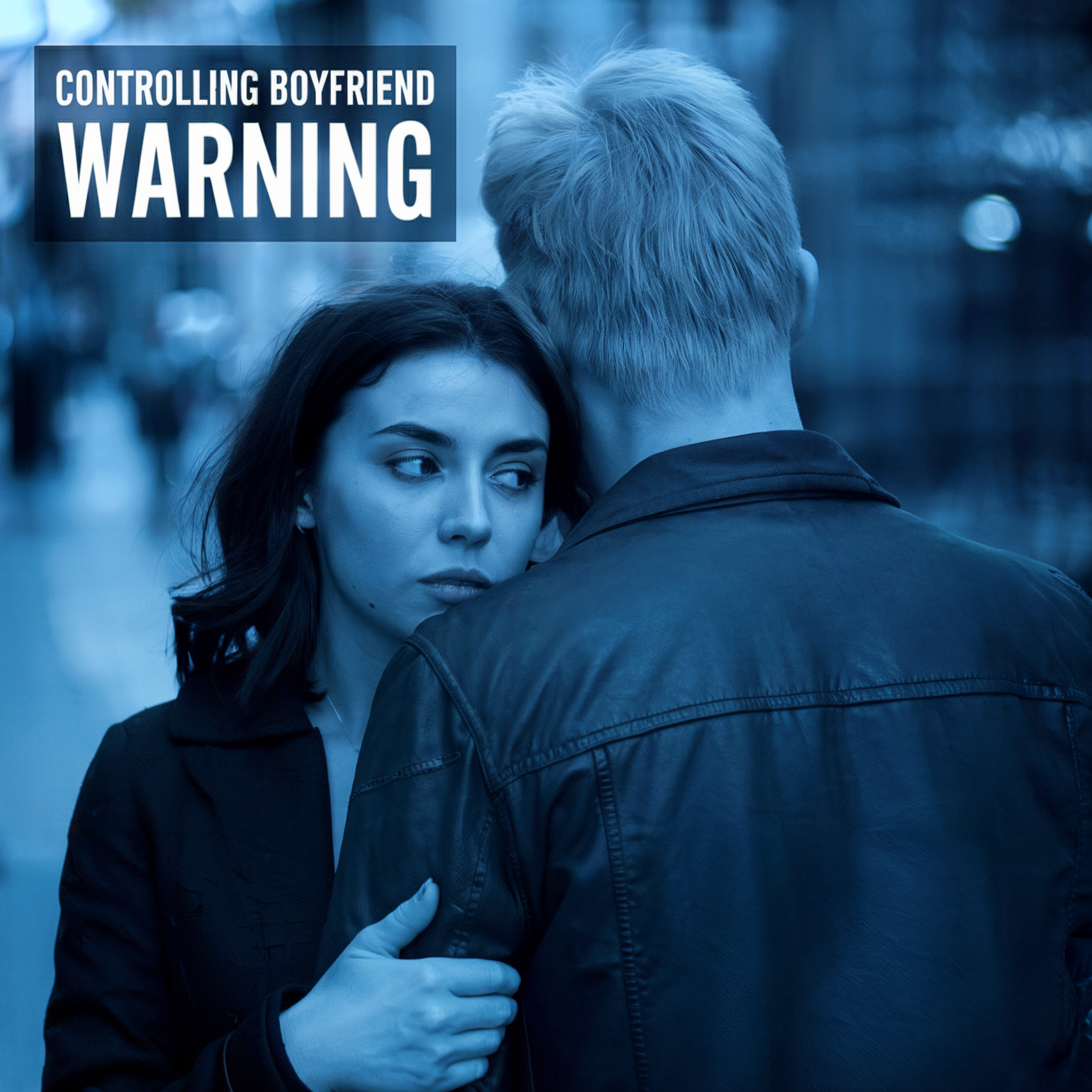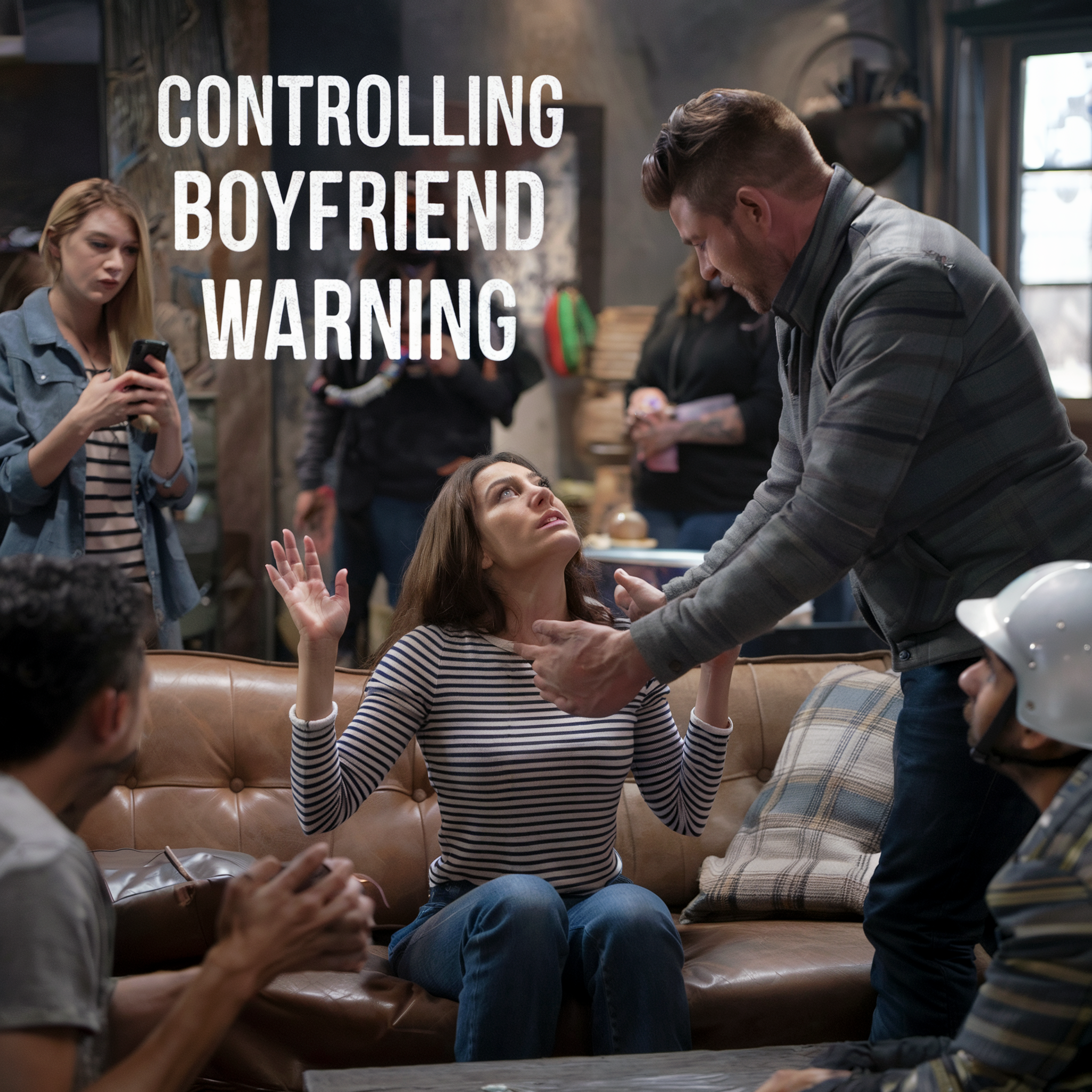Key points
Here are 3 improtant key points on warning signs of a controlling boyfriend:
- Isolation Strategies: A domineering boyfriend might try to separate you from your loved ones. He wants to be your everything, cutting down how often you see other people.
- Relentless Oversight: He could demand constant updates on your location, keep tabs on you, or even use GPS to watch over you. This shows he doesn’t trust you and wants to call the shots.
- Nitpicking and Mind Games: Frequent digs at your actions, looks, or decisions might chip away at your confidence. Plus, he might use guilt to make you crave his praise.
Contents
- 1 Key points
- 2 Dealing with Control in Relationships
- 3 Jealousy and Possessiveness
- 4 Isolation Tactics
- 5 Lowering a Partner’s Confidence
- 6 Monitoring and Surveillance
- 7 Decision-Making Dominance
- 8 Criticism and Degradation
- 9 Gaslighting and Reality Distortion
- 10 Emotional Blackmail
- 11 Ultimatums and Threats
- 12 A. Inconsistency in Behavior and Mood
- 13 B. Public vs. Private Persona
- 14 C. Aggression and Intimidation
- 15 D. Withholding Affection and Approval
- 16 Understanding the Psychological Effects on Controlled Individuals
- 17 Recognizing Control Dynamics
- 18 Setting Boundaries and Asserting Independence
- 19 Getting Help from Loved Ones or Experts
- 20 Getting Ready for a Possible Fight or Breakaway
- 21 Frequently Asked Questions (FAQ)
This kind of behavior can encompass tracking your every move, telling you who to hang out with, or dictating your fashion choices. Sometimes it’s hidden, like using guilt or shame to sway you. This isn’t just being caring—it’s a power play that can wreck your bond and comfort level.
Genuine love doesn’t act like this; it’s warm and unselfish. Don’t confuse real care with manipulative control. Care is all about affection, but control comes from selfish needs. It’s vital to spot these red flags and deal with them to maintain a solid, kind, and fair partnership.
Dealing with Control in Relationships

It’s not easy to gauge how common controlling behavior is in relationships, since people often don’t report it and there’s no clear agreement on what ‘controlling’ really means. That said, it’s clear that this issue isn’t unusual. You’ll find controlling relationships indiscriminately across different ages, cultures, and social classes. Even without solid numbers, stories from therapy, helpline conversations, and surveys paint the picture of a big problem in society.
The Impact of Dominating Partners
Living under someone else’s thumb can affect every part of your life. When someone controls you too much – sometimes to the point of playing mind games or physically holding you back – it leaves deep emotional wounds. This can crush your confidence and independence, make you lose touch with friends and family, and even lead to serious issues like depression or panic attacks.
On a larger scale, these kinds of relationships damage what it means to be in a healthy partnership, which might mess up things for future families by setting a bad example. The way these problems spread – from hurting individual well-being to screwing up how we all get along – shows just how much harm controlling partners can do.
The research, with the title “Dating and relationship violence among 16–19 year olds in England and Wales: a cross-sectional study of victimization,” was carried out by scholars. They published their findings in the Journal of Public Health, which is a part of Oxford Academic.
This study delves into dating and relationship violence (DRV), which includes various harms from threats to emotional mistreatment, forceful control, physical abuse, and wrongful sexual acts by an ex or a current partner.
The researchers looked at 2105 young folks aged 16–19 studying in six sixth-form colleges and colleges of further education across England and Wales. This survey happened from September to December in 2015.
The study’s main goal was to gauge the scope of DRV, figure out how often it happens, identify related social, cultural, and behavioral aspects, and understand its impact on health for youngsters in the UK.
Research reveals that dating and relationship violence (DRV) is quite common among 16 to 19-year olds in Further Education institutions in England and Wales. The study showed a link between being a victim of DRV and various factors, such as a person’s socio-economic background, sexual identity, and how they act in relationships.
The findings help us get a better picture of how widespread DRV is, who it affects, and the health problems it can cause for young folks. The goal is to use this info to create strategies and policies to tackle this kind of violence in schools.
Jealousy and Possessiveness

A boyfriend who gets really jealous sees his girlfriend’s every chat or hangout with someone else as a danger. This kind of worry makes him act possessive, trying to manage whom she meets or spends time with. He might stop her from seeing her pals or make sure he’s always there with her, which really cuts down on her own space.
Isolation Tactics
Some partners who like to control employ isolation as a tool. They may trash-talk friends and family so the partner stops talking to them, or they hog all the free time their partner has. This makes the partner being controlled rely heavily on their controlling partner for any kind of social life and support.
Lowering a Partner’s Confidence
A bossy boyfriend might often pick on his girlfriend, directly or indirectly making her feel small. He could be making fun of her body, making light of her dreams, or making her successes seem unimportant. These behaviors usually chip away at her confidence. Feeling more insecure, she starts depending on him more, thinking she can’t find anyone better or that she doesn’t deserve love from others.
Monitoring and Surveillance
Keeping an eye on someone can involve things like asking for their passwords, scrolling through their texts, or using a phone or gadget to know where they are. This kind of watching shows a real suspicion and a need to manage every part of their partner’s world. People often say they’re just worried about their safety or that bad stuff in the past is why they can’t trust now.
Decision-Making Dominance

When a partner always wants to make the decisions, from picking out clothes to handling money or career moves, it’s a red flag. They might act like they’re trying to help by claiming they know what’s best for both parties. However, this behavior actually takes away the other person’s power to choose for themselves. The result is one partner feeling lost and unsure about making any decisions without the other’s say-so.
Criticism and Degradation
People in a controlling relationship often face constant criticism from their partners. Their partners aim to weaken their self-confidence, making them more reliant on the person in control. The scorn takes many shapes, like teasing, snide remarks, or direct put-downs. This negative treatment eats away at the victim’s confidence and makes it harder for them to stand up to their partner or look for help from others.
Gaslighting and Reality Distortion
Controlling partners often use a trick called gaslighting. It’s a sneaky way to twist someone’s mind into doubting their memory, how they view things, and even their sanity. Say a controlling boyfriend might completely dismiss something he said before or act like certain things never happened, even if there’s proof he’s wrong. This tactic is really confusing and can make the victim second-guess themselves constantly.
Emotional Blackmail
In a relationship where one person is in control, it’s not uncommon to come across something called emotional blackmail. This means using sneaky methods to take advantage of someone else’s sense of duty, guilt or scare them. For instance, someone might threaten to hurt themselves or act like they’re the victim if they don’t get their way. This usually ends up with the person being manipulated doing stuff they don’t really want to, just to keep the other person happy.
Ultimatums and Threats
In the end, controlling partners use ultimatums and threats to hold power. They might hint at the bad stuff that could happen if their partner doesn’t listen or openly threaten their safety or friendships. This kind of pressure makes the controlled person do what they’re told since fighting back seems too risky and like it won’t work anyway.
A. Inconsistency in Behavior and Mood

In a relationship, it’s important to have a stable idea of how your partner will act and feel. But, if you’re with someone who likes to control everything, you might see big changes in how they behave and their moods. They might go back and forth between being loving and distant, or their emotions could flip quickly for no obvious reason. This kind of unpredictable behavior can create a sense of unpredictability, making the other person always feel tense and never really settled or safe with how things are going.
B. Public vs. Private Persona

People act differently when they’re around others compared to when they’re alone with someone close. This is especially true for those who like to control their partners. In a crowd, they often seem friendly and thoughtful, which makes everyone like them. But when they’re alone with their partner, they can become bossy and pushy. The person who’s being controlled sees this huge change up close. It makes them feel alone and confused because it’s totally different from what everyone else thinks is going on.
C. Aggression and Intimidation
Control in relationships can show up as aggression and intimidation. Physical aggression is a definite red flag for abuse, but mental manipulation is just as harmful even though it’s not as obvious. A controlling boyfriend may resort to getting angry or making veiled threats to bend his partner’s will. The fear of setting off these outbursts can make the other person give in just to keep things calm or stay away from fights, and this only makes the power difference worse.
D. Withholding Affection and Approval

In healthy relationships, we usually look forward to affection and approval. However, someone who likes to control may use these things as tools. They might not give praise, show love, or talk to their partner unless they get what they want first. This approach keeps them in charge of the relationship’s direction. It’s harmful since it lowers the other person’s self-confidence. Plus, it creates a cycle where the partner has to constantly try hard just to get the emotional care they should be getting without conditions.
Understanding the Psychological Effects on Controlled Individuals
In relationships where one person is controlling, the other often loses a lot of their freedom. They find their own choices and wishes getting buried by what their partner wants. As this happens over and over, they don’t just lose their ability to make decisions; they can also start to lose their sense of self.
Anxiety and Fear
In these kinds of relationships, there’s usually a constant feeling of discomfort and fear. The person who’s being controlled might always be tense, ready for the controller to react badly to the smallest things. This unending stress doesn’t just cause worry; it can turn into a deep fear that affects their relationship and their life in general.
Dependency and Learned Helplessness
An especially harmful result of constant control is that the person being controlled starts to depend heavily on their partner. Since the controller often questions their decisions, the other person starts to think they can’t do anything right. This leads to learned helplessness, a state where they feel they can’t make choices without their partner’s say-so, making them even more reliant on them.
The Effect on Mental Health and Self-View
The impact of such relationships on mental health is serious. Over time, how controlled people see themselves can change — they start gauging their worth by what their partner thinks instead of their own qualities. This can hurt their self-esteem and image, causing mental health problems like depression, anxiety, or even complex trauma responses, which greatly harm their happiness and health.
Recognizing Control Dynamics
First off, if you want to tackle controlling behavior in a relationship, you gotta spot the warning signs. Partners who like to control tend to get jealous a lot, want all of your time to themselves, and might try to cut you off from friends and family. They often pick on you or play the guilt card to steer your choices. Noticing these red flags is crucial to understand that they’re stepping on your independence.
Setting Boundaries and Asserting Independence
It’s important to set clear boundaries to protect who you are. Be clear and firm when you tell your partner what you need and what you won’t put up with. To build your independence in the relationship, don’t forget to keep up with your hobbies, stay in touch with friends and family, and take care of your own money.
Getting Help from Loved Ones or Experts

Handling a dominating partner doesn’t have to be a solo mission. Chat with trusted pals or think about getting help from a counselor. Your buddies and relatives can give you comfort and a fresh view, therapists can teach you techniques to deal with the problems and get your life on a better track. It’s important to know that asking for aid is a sign of courage, not defeat.
Getting Ready for a Possible Fight or Breakaway
If you gotta face up to someone’s bossy ways or maybe bail on the relationship, getting ready is super important. Make sure you got a strategy for talking safely, and figure out how you’re gonna get out if things come to that. Have your key papers and some cash handy, and let some good friends in on what you’re planning—extra safety net, you know.
Frequently Asked Questions (FAQ)
How might a boyfriend exert control by interfering with his partner's friendships?
A controlling boyfriend may attempt to limit his partner’s interactions with friends, perhaps by expressing unwarranted criticism towards them or by making overbearing decisions about when and how their partner should socialize, ultimately isolating them from their support network.
What are subtle manipulation tactics a partner could use to assert power in a relationship?
Subtle manipulation tactics include incessant phone calls checking on their partner’s whereabouts, planting seeds of doubt regarding the partner’s competence, decision-making abilities, or even something as seemingly benign as a suggestive eye roll during conversation to undermine the partner’s influence.
In what ways can a boyfriend's controlling behavior manifest in regards to his girlfriend's privacy?
A boyfriend may infringe on his girlfriend’s privacy by demanding access to her phone or social media accounts, checking her messages and activity without consent, or showing aggression if she resists such invasions, all of which are red flags for controlling behavior.
Could frequently giving 'gifts' like outfits or accessories be a sign of attempting control in a relationship?
Yes, what might initially appear as attentiveness through gifting outfits or accessories could actually be an attempt at control, especially if these gifts come with the expectations that they are to be worn regularly, serving as a form of influence over the partner’s taste and wardrobe choices.
What analogy can be drawn between controlling relationships and water temperature change?
An apt analogy is the ‘boiling frog’ scenario: Like a frog not perceiving gradual increases in water temperature, people may not notice the slow escalation of controlling behaviors until it has reached dangerous degrees of power imbalance and loss of autonomy.
How might cultural perceptions affect women realizing that their husband's criticism is actually a form of control?
Cultural norms might condition women to perceive certain forms of criticism from their husband as ‘normal’ spousal dynamics. Therapist Aleesha Grier asserts this may obscure the recognition of this criticism as a control tactic designed to induce feelings of inferiority and despair.
Can control in adult relationships stem from childhood experiences?
Absolutely, studies point that often times, behaviors exhibited in adult relationships can be traced back to defense mechanisms shaped by childhood experiences – this includes adopting controlling tendencies as a way to avoid feelings akin to past neglect or instability.
What potential dynamics in a relationship hint at an unhealthy balance of power and control?
Unhealthy dynamics can include one partner holding all decision-making power, diminishing the other’s sense of responsibility or agency, and applying pressure to conform to their desires – these actions sometimes cloak deeper issues of codependency and fear of abandonment.
Could frequent outbursts of dissatisfaction over trivial matters indicate underlying control issues in a man?
Yes, if a man consistently creates friction over trivial matters, like criticizing minor arrangements or household details, it could indicate deeper control issues. This reaction seeks to maintain dominance by eroding the partner’s self-confidence through degradation and manipulation.
Why might a boyfriend cross the line from genuine concern to covert controlling behaviors?
A boyfriend might cross this line under the guise of concern for his partner’s safety as a subterfuge for control. By restricting her social schedule under the pretense of caring for her well-being, he is actually curtailing her autonomy and setting up dynamics that perpetuate dependency.

I’m Kary Walters, a wedding planner and writer with a passion for helping couples stay together and achieve their relationship goals. With over a decade of experience, I specialize in self-improvement and have worked with individuals & couples facing challenges.